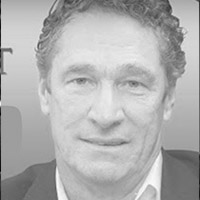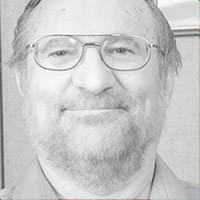Can DAFs Maximize Family Office Charitable Dollars?

Can DAFs Maximize Family Office Charitable Dollars?
When you hear the name John D. Rockefeller, an image of the first, made in the USA, billionaire may come to mind. Brilliant and extraordinary, yes, but we’re going to discuss his son and only heir to the immense Rockefeller fortune. John D. Rockefeller Jr. who spent much of his life dedicated to…
…philanthropy. He graduated from Brown University and then went to work for his father. He didn’t have any specific responsibilities, but there was an expectation that he would be doing business and philanthropic work. However, John quickly found he didn’t have the same knack for making profit that his father did, and after a nervous breakdown, left his job and decided to dedicate his life to charitable giving.[1]
Good thing too, because it was the brilliant and extraordinary John Jr. that we have to thank for one of the key charitable vehicles utilized by family offices today, the Donor Advised Fund (DAF). “The first DAF was established in 1931, by the New York Community Trust and was supported and sustained by John D. Rockefeller Jr. It allowed individual donors to support charitable causes they were passionate about as opposed to grant decisions being made by the community foundation”.[2]
So what exactly is a Donor Advised Fund?
Donor Advised Funds are charitable vehicles that fall in between Public Charities and Private Foundations. They allow individuals and family office wealth to take advantage of charitable tax deductions up front while controlling when and to whom their assets are given. This giving vehicle could be utilized by a donor when they have a spike in income that puts them into a higher tax bracket than they had anticipated. A good example of this would be someone selling their company. If they know that they would like to commit a certain amount of money to a charity in the future, but aren’t quite sure yet which, they can put the money in a donor advised fund. When that happens, the donor gives up possession/ownership of the money, however they are still able to advise when the money is donated and to which organizations the funds will benefit. Since the donor gives up possession of the money, they receive a tax deduction in the current year, even though he or she may not yet know to whom they will ultimately gift the funds.[3]
Does a DAF help with tax planning?
The fact that a donor can now separate the timing of the gift from the year the tax deduction is received, creates a lot of flexibility for tax strategies. Additionally, certain basis rules that apply regarding the donations of non-cash assets to private foundations don’t apply to donor advised funds. Alan Cantor, who is a nonprofit consultant provides us with the following example to illustrate why a donor advised fund can be much more beneficial in comparison to private foundations:
“Let’s imagine that you’re a donor and you bought a house on Lake Tahoe in 1962 for $100,000. It’s now worth $5 million dollars. And you want to create a charitable entity that you can make charitable gifts from. If you put that into a private foundation, the only tax deduction you would get would be that $100,000 that you bought the house for 50 years ago. If you put it into a donor advised fund, you would get a $5,000,000 deduction because technically it is considered part of a public charity that technically controls the donor advised fund.”[4]
We hope you found this article about can DAFs maximize family office charitable dollars helpful. If you have questions or need expert tax or family office advice that’s refreshingly objective (we never sell investments), please contact us or visit our Family office page or our website at www.GROCO.com. Unfortunately, we no longer give advice to other tax professionals gratis.
To receive our free newsletter, contact us here.
Subscribe to our YouTube Channel for more updates.
Considerately yours,
GROCO, GROCO Tax, GROCO Technology, GROCO Advisory Services, GROCO Consulting Services, GROCO Relationship Services, GROCO Consulting/Advisory Services, GROCO Family Office Wealth, and GROCO Family Office Services.
[1] https://www.philanthropyroundtable.org/almanac/people/hall-of-fame/detail/john-rockefeller-jr
[2] https://thesignatry.com/daf-history/
[3] https://www.fidelitycharitable.org/guidance/philanthropy/what-is-a-donor-advised-fund.html
From Smart to Wise – Prasad Kaipa, CEO Coach and Advisor
About Prasad Kaipa Prasad has been an advisor and coach focusing on innovation and leadership since 1990 for about 120 C-level executives in Global Fortune 500 companies. Prasad’s unique competence is in helping his clients find their next significant step and take it. He found that unless he helps clients to examine their signature…
Wealth Management | Guy Lampard
About Guy Lampard Guy Lampard is a Partner at Aperio Group. Guy is a former Partner at Montgomery Securities and Senior Managing Director at Bank of America Securities—where he worked for 15 years. During his career at Montgomery and Banc of America, his responsibilities included Director of the International Department, Deputy Head of Institutional…
Insurance Factors – Dennis Wolfe, Healthcare Specialist
About Dennis Wolfe Dennis began his insurance career in 1976 and quickly gravitated to the rapidly developing small group benefits market. Almost immediately he wrote the benefit plan for a large interstate restaurant chain. from there he wrote the benefits for a Fortune 500 company. That followed with a total revamping of a major…
Disruptive Startups | Dr. John Garnier
About Dr. John Garnier John is an expert in Business Development, Corporate Division, Small Business Startups and is an International Expert in Silicon Carbide. Additionally he holds a PhD in Materials Science from Marquette University. He is the author of two books through the Nuclear Regulatory Commission, technical papers (40+), patents 11+, and more…




